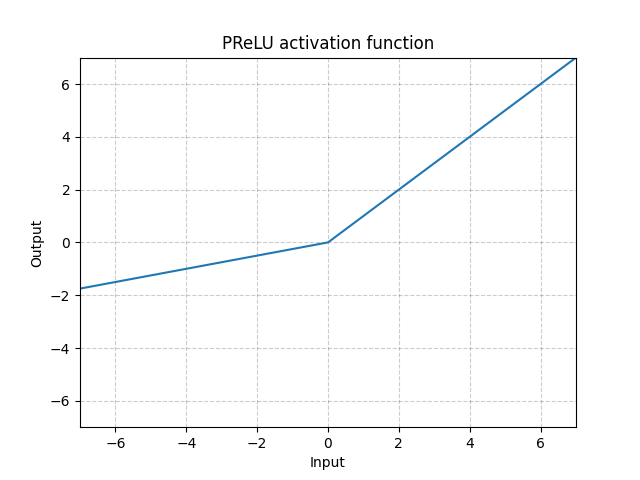PReLU¶
-
class
torch.nn.PReLU(num_parameters=1, init=0.25)[source]¶ Applies the element-wise function:
or
Here is a learnable parameter. When called without arguments, nn.PReLU() uses a single parameter across all input channels. If called with nn.PReLU(nChannels), a separate is used for each input channel.
Note
weight decay should not be used when learning for good performance.
Note
Channel dim is the 2nd dim of input. When input has dims < 2, then there is no channel dim and the number of channels = 1.
- Parameters
- Shape:
Input: where * means, any number of additional dimensions
Output: , same shape as the input
- Variables
~PReLU.weight (Tensor) – the learnable weights of shape (
num_parameters).

Examples:
>>> m = nn.PReLU() >>> input = torch.randn(2) >>> output = m(input)
